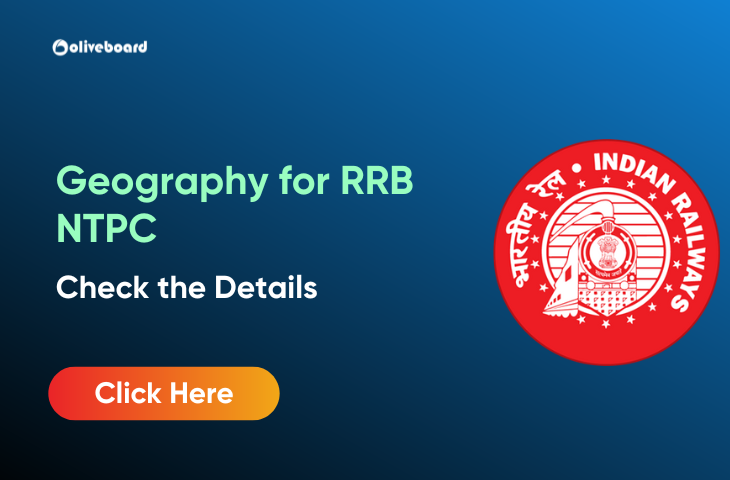The Railway Recruitment Board conducts the RRB NTPC exam to recruit candidates in non-technical categories. One of the important subjects that candidates must study properly for the exam is geography. In this article, we have provided an analysis of the RRB NTPC Syllabus, important topics and subtopics, some mock questions and preparation tips.
RRB NTPC Geography Syllabus
The RRB NTPC Geography Syllabus contains important topics like physical geography, climate, natural resources, and more. Candidates must develop a proper preparation strategy to score well in the geography section. It is also recommended that candidates use quality study material while preparing for the exam.
RRB NTPC Geography Syllabus
The RRB NTPC Syllabus for Geography covers important topics and subtopics. The table below shows the important sub-topics for each of the sections:
| Topics | Sub-topics |
| Physical Geography | Earth’s Structure: Layers, tectonic plates, rocks Landforms: Mountains, plateaus, plains, deserts, rivers Climate and weather patterns Oceans and seas: Currents, tides, waves Natural disasters: Earthquakes, tsunamis, volcanoes, cyclones |
| Indian Geography | Physical features: Himalayas, Northern Plains, Peninsular Plateau, Coastal Plains, Islands – Major rivers and lakes Indian monsoon, forests, climatic zones Soil types, major crops, and agricultural practices Minerals, water, and energy resources |
| World Geography | Continents and oceans Major mountain ranges and rivers Climate zones: Tropical, temperate, polar Natural vegetation and biodiversity hotspots |
| Economic Geography | Agriculture: Crops, farming types, products Industries: Types, regions, raw materials Trade routes, ports, and transport systems Distribution of minerals, fossil fuels, and renewables |
| Environmental Geography | Environmental issues: Pollution, deforestation, climate change – Biodiversity and conservation Sustainable development and resource use |
| Geographical Terminology | Key terms: Latitude, longitude, equator, meridians, time zones Map reading: Symbols, scales, directions Theories: Water cycle, rock cycle, plate tectonics |
| Preparation Tips | Use NCERT textbooks (Classes 6–12) Refer to atlases and maps regularly Practice previous year questions Stay updated with current events |
RRB NTPC Mock Questions
It is recommended that candidates attempt the RRB NTPC Mock Test regularly to improve their performance. Some mock questions, along with the answers, are given below for candidates:
1. Which river is known as the “Sorrow of Bihar”?
(a) Ganga
(b) Kosi
(c) Ghaghara
(d) Gandak
Answer key: (b) Kosi
2. Tropic of Cancer does not pass through which of the following Indian states?
(a) Rajasthan
(b) Tripura
(c) Jharkhand
(d) Odisha
Answer key: (d) Odisha
3. The Great Victoria Desert is located in which country?
(a) USA
(b) Australia
(c) South Africa
(d) Canada
Answer key: (b) Australia
4. Which is the highest dam in India?
(a) Bhakra Dam
(b) Sardar Sarovar Dam
(c) Tehri Dam
(d) Hirakud Dam
Answer key: (c) Tehri Dam
5. What type of climate does the Thar Desert experience?
(a) Tropical Wet
(b) Tropical Wet and Dry
(c) Arid
(d) Humid Subtropical
Answer key: (c) Arid
6. Which among the following is the longest continental mountain range in the world?
(a) Himalayas
(b) Andes
(c) Rockies
(d) Alps
Answer key: (b) Andes
7. Which state in India is the largest producer of salt?
(a) Tamil Nadu
(b) Gujarat
(c) Maharashtra
(d) Rajasthan
Answer key: (b) Gujarat
8. Which city is located on the banks of the river Musi?
(a) Bengaluru
(b) Hyderabad
(c) Pune
(d) Bhopal
Answer key: (b) Hyderabad
9. What is the approximate percentage of forest cover in India as per the latest FSI report?
(a) 17%
(b) 19%
(c) 21%
(d) 24%
Answer key: (d) 24%
10. The Deccan Plateau is primarily composed of which type of rock?
(a) Sedimentary
(b) Igneous (Basalt)
(c) Metamorphic
(d) Granite
Answer key: (b) Igneous (Basalt)
RRB NTPC Geography Preparation Tips
To score well in the geography section, candidates must follow a proper study schedule and strategy. Some important preparation tips are as follows:
- Cover the important topics in the geography syllabus
- Solve RRB NTPC Previous Year Papers to understand the level of difficulty
- Monitor your performance through mock tests
- Use the best study material for preparation
We hope this blog gave you a better understanding of the Geography for RRB NTPC. To read more such blogs, visit the Oliveboard website!
FAQs
The Geography section typically includes physical geography, human geography, and world geography.
Yes, maps and diagrams can help you understand and remember geographical concepts better.
Focus on topics like landforms, climate, and natural resources through study materials and visual aids.
Current affairs related to geography, such as environmental issues or recent natural disasters, are often included.
Both Indian and World Geography are important; balance your study to cover major topics from each.
Yes, previous years’ papers can provide insights into the type of questions asked and help you identify key topics.
Utilize online quizzes, video tutorials, and practice tests to reinforce your understanding and test your knowledge.
While memorization is useful, understanding concepts and being able to apply them is more important for answering questions effectively.
- RRB NTPC 2025 Question Papers, Shift-Wise PYPs, Download PDFs
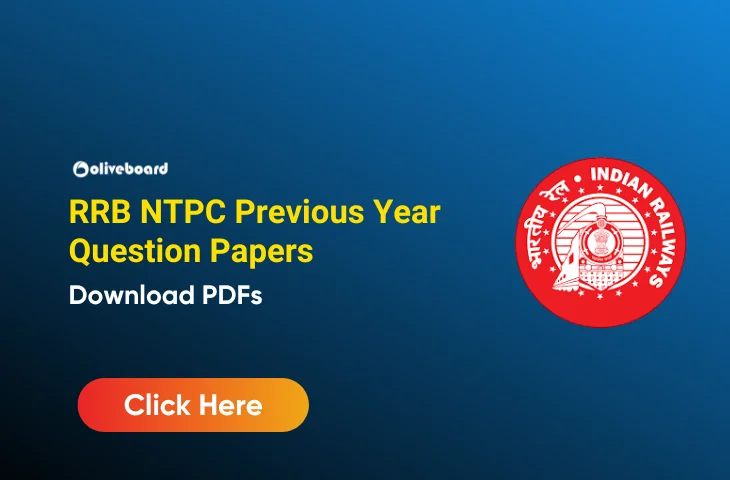
- RRB JE Civil Syllabus 2026, Check Topic Wise Syllabus
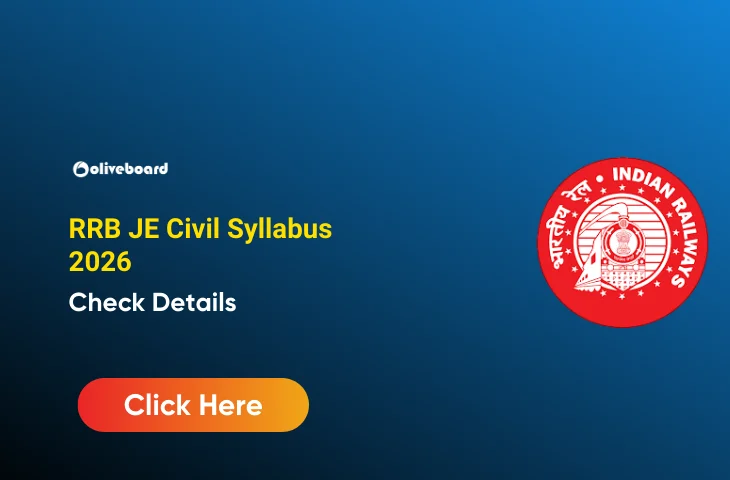
- RRB NTPC 2026 CBT 1 Exam Date Out, Check Official Dates
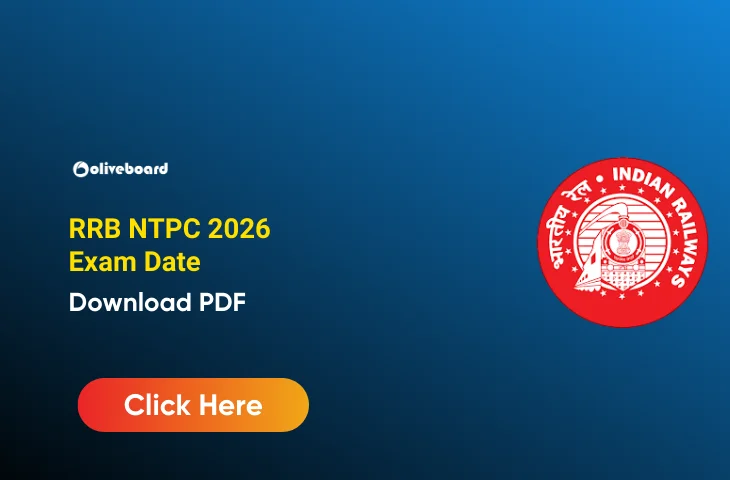
- RRB NTPC UG Application Status 2026 Out, Check Official Link
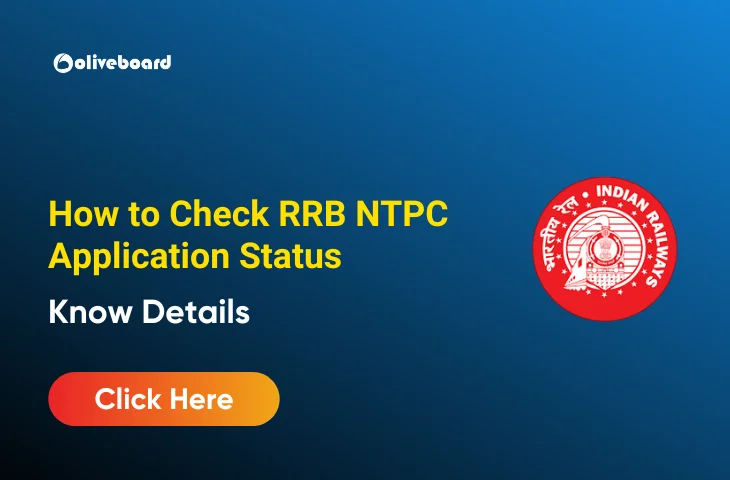
- RRB NTPC Typing Test 2026, Know the Latest Instructions

- RRB NTPC Scorecard 2026, Check How to Download
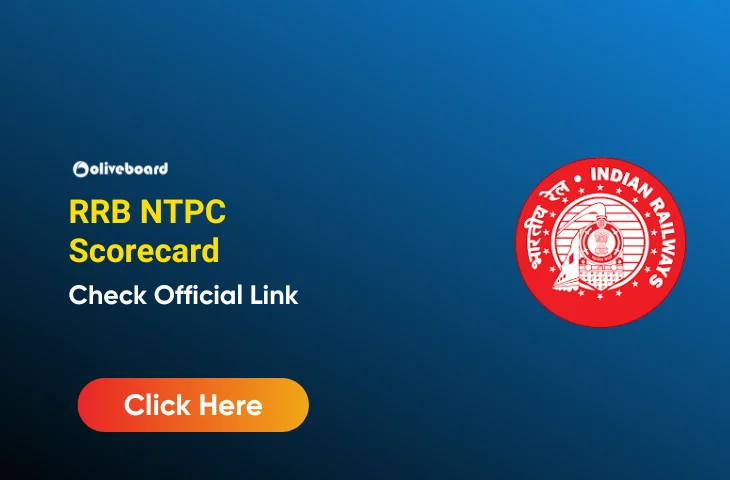

Hello! This is Arijit Dutta. I am a skilled Content Writer at Oliveboard with nearly 3+ years of experience in crafting engaging, informative, and exam-focused content for the Railways Domain. With a strong command of language and a keen understanding of learner needs, I contribute significantly to Oliveboard’s mission of delivering high-quality educational resources. Passionate about clear communication and continuous learning, I consistently create content that helps government job aspirants achieve their goals. Outside of work, I enjoy playing cricket and listening to music, which helps me stay balanced and creative in my professional journey.
